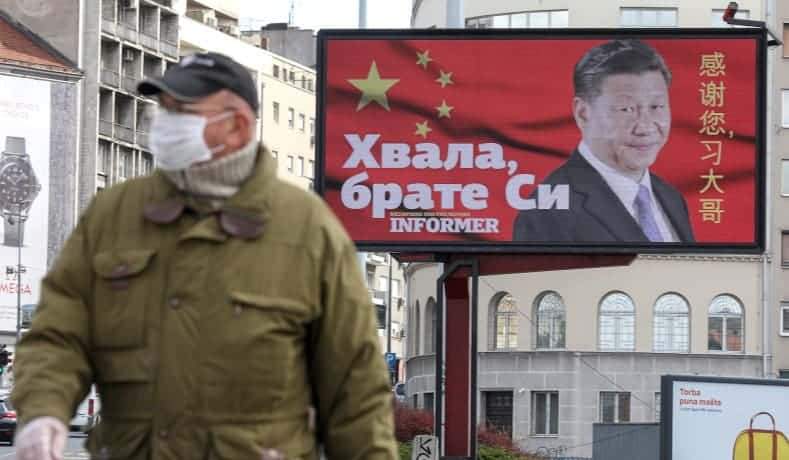A Startling Report on the CCP’s Global Reach

A new report released Monday describes the breadth of the Chinese Communist Party’s influence in liberal democracies via its United Front system, “a network of party and state agencies responsible for influencing groups outside the party, particularly those claiming to represent civil society.”
Since 2015, the Australian Strategic Policy Institute’s Alex Joske writes, the United Front Work Department has enjoyed increased influence. Xi Jinping undertook an overhaul of United Front efforts, expanding its jurisdiction to include ethnic and religious minorities and Chinese individuals overseas.
Today, the overseas functions of united front work include increasing the CCP’s political influence, interfering in the Chinese diaspora, suppressing dissident movements, building a permissive international environment for a takeover of Taiwan, intelligence gathering, encouraging investment in China, and facilitating technology transfer.
Case studies explain how members of parliament in the United Kingdom and Australia were swept up in influence operations by United Front–linked businesspeople and leaders in the Chinese diasporas of those countries. Selecting the most shocking incident described in the report is a challenge; here are just two of them:
Deloitte China established a united front association for young and middle-aged employees in 2016, headed by its CEO. At the association’s founding, a Deloitte partner thanked the UFWD for its support and promised: ‘The Deloitte Young and Middle-aged Intellectuals Association will comply with the Trial Regulations on United Front Work’.Both major party candidates for a seat in parliament during the 2019 Australian federal election had reportedly either been members of united front groups or had travelled on united-front-sponsored trips to China.
United Front groups also exert influence in higher education through Confucius Institutes and Chinese student groups. Chinese Students and Scholars associations, writes Joske, “are the primary platform for United Front work on overseas students. Most CSSAs operate under the guidance of Chinese embassies and consulates.”
Illegal technology transfers are facilitated by the United Front’s Thousand Talents Program and professional associations overseas. And United Front–linked civil-society groups report back to UFWD with the names of public figures, students, and scientists abroad.
The challenge to Western democracies is twofold. As the report shows, the United Front network enjoys a reach that spans foreign countries, including every Five Eyes member. Tracking down and containing these groups is a difficult task. At the same time, attempts to curb CCP influence must respect the rights to which people in these countries are entitled.
Joske recommends that policymakers take care to distinguish between the CCP, Chinese citizens, and members of ethnic Chinese communities as they work to cast a light on United Front groups. He urges governments protect students and ethnic Chinese individuals from surveillance and harassment by United Front groups, not alienate them. Still, measures targeting Chinese students and researchers remain a topic of fierce debate and often elicit accusations of racism.1
While officials should proceed carefully, combating Chinese influence in free societies is important. Measures targeting technology transfers, such as the Department of Justice’s China Initiative, the past two years are just the start. The evolving nature of the United Front’s work calls for a vigorous and well-informed response.
Joske predicts that United Front targets can expect “an increase in the brazenness, intolerance and intensity of United Front work abroad, helped by the party’s increased ability to coordinate and direct that work.”
Photo: A man passes by a billboard depicting Chinese President Xi Jinping as the spread of the coronavirus continues in Belgrade, Serbia, April 1, 2020. (Djordje Kojadinovic/Reuters)
Link: https://www.nationalreview.com/corner/a-startling-report-on-the-ccps-global-reach/











